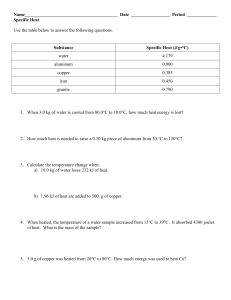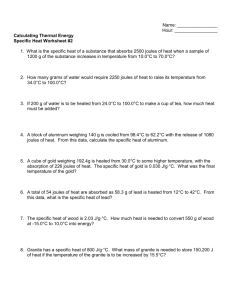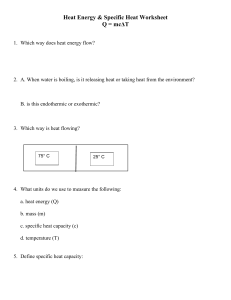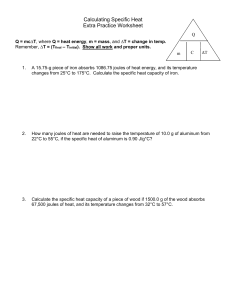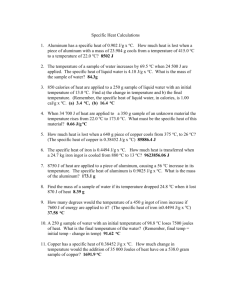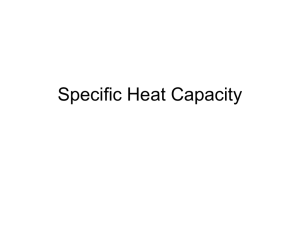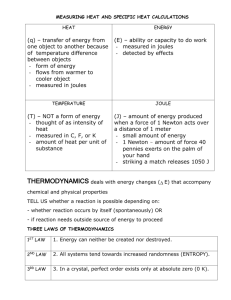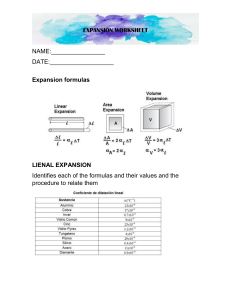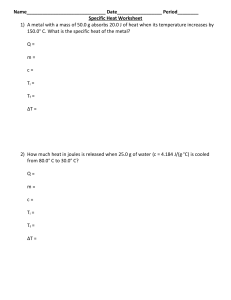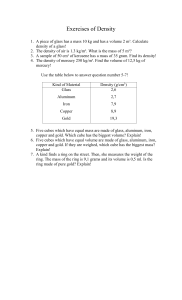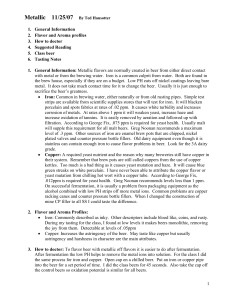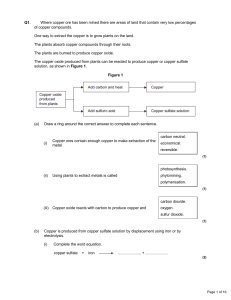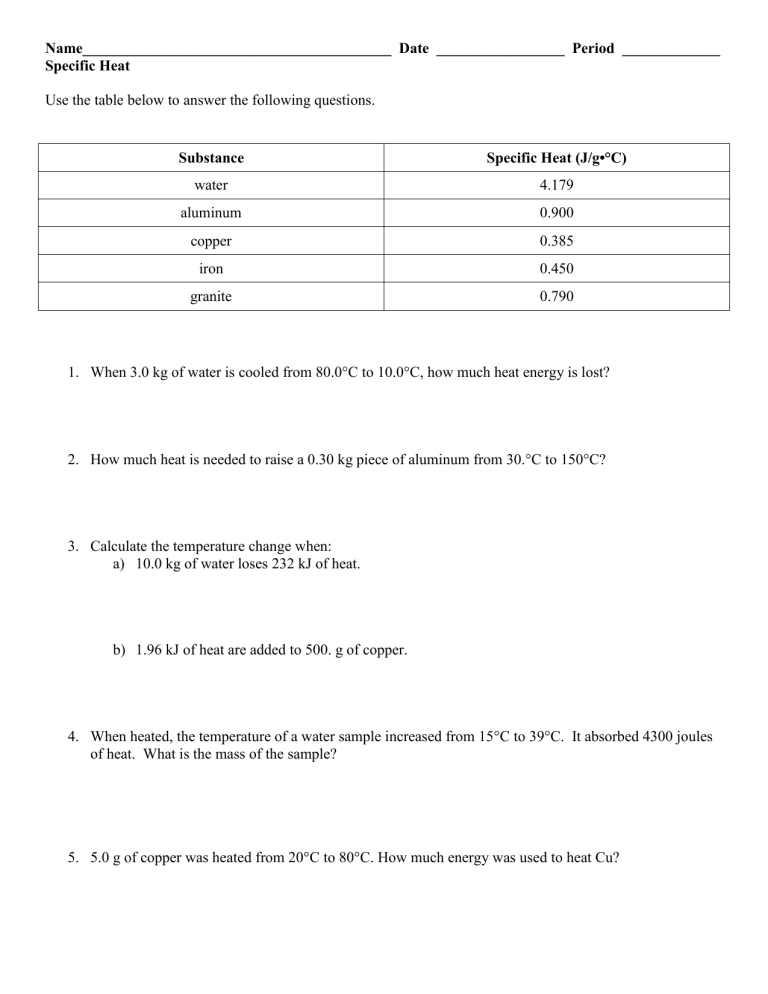
Name_________________________________________ Date _________________ Period _____________ Specific Heat Use the table below to answer the following questions. Substance Specific Heat (J/g•°C) water 4.179 aluminum 0.900 copper 0.385 iron 0.450 granite 0.790 1. When 3.0 kg of water is cooled from 80.0C to 10.0C, how much heat energy is lost? 2. How much heat is needed to raise a 0.30 kg piece of aluminum from 30.C to 150C? 3. Calculate the temperature change when: a) 10.0 kg of water loses 232 kJ of heat. b) 1.96 kJ of heat are added to 500. g of copper. 4. When heated, the temperature of a water sample increased from 15°C to 39°C. It absorbed 4300 joules of heat. What is the mass of the sample? 5. 5.0 g of copper was heated from 20°C to 80°C. How much energy was used to heat Cu? 6. The temperature of a sample of iron with a mass of 10.0 g changed from 50.4°C to 25.0°C with the release of 47 Joules of heat. What is the specific heat of iron? 7. The temperature of a sample of water increases from 20°C to 46.6°C as it absorbs 5650 Joules of heat. What is the mass of the sample? 8. How much heat is absorbed by 20g granite boulder as energy from the sun causes its temperature to change from 10°C to 29°C? 9. If a 3.1g ring is heated using 10.0 J, its temperature rises 17.9°C. Calculate the specific heat capacity of the ring. 10. What is the specific heat of an unknown substance if a 2.50 g sample releases 12 calories as its temperature changes from 25°C to 20°C?
